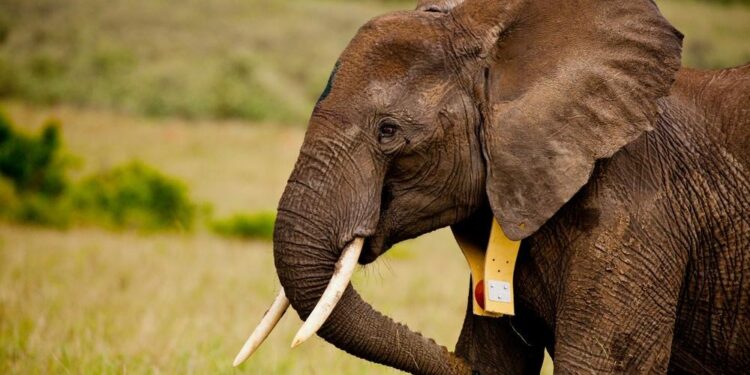In a bid to understand the potential impact of the Gwayi-Shangani Dam construction on elephant movements, conservationists in Zimbabwe have embarked on a groundbreaking project to fit GPS-enabled tracking collars on eight African savannah elephants.
The project, a collaboration between ZimParks and the International Fund for Animal Welfare (IFAW), aims to shed light on how the dam’s construction, situated less than 50 kilometers east of Zimbabwe’s iconic Hwange National Park, might alter the elephants’ behaviour within the landscape.
Elephants, known for their wide-ranging movements, may face significant disruptions due to the dam’s construction and by tracking their movements, the project seeks to understand the intricate relationship between human activities and elephant behaviour in the area.
Over the course of two years, data collected from the collars will be analyzed to gain insights into spatial movement, habitat usage, and seasonal migrations of the elephants. By focusing on six matriarch elephants and two bull elephants, the project aims to track the movements of over 60 elephants, including family herds and solitary bulls.
Phillip Kuvawoga, Landscape Conservation Director at IFAW, expresses optimism about the project’s potential impact.
“It’s always exciting when you see innovative technological developments change how we work. This elephant collaring project could enhance our conservation efforts and inform future land-use planning in the greater Hwange ecosystem.
“Conservation interventions should be based on sound science, and by tracking these animals, we can forecast and map potential human-elephant conflict hotspots to guide management interventions,” Kuvawoga said.
Nobesuthu Ngwenya, National Elephant Coordinator at ZimParks, echoes the sentiment, highlighting the necessity of understanding elephant movement patterns outside protected areas.
“Recent studies confirm that elephants spend much of their time outside protected areas, risking conflict with humans. Better understanding their movement patterns will help inform sound long-term management of the elephants,” said Ngwenya
The elephant collaring operation is set to commence this April and is expected to run for up to 15 days.



